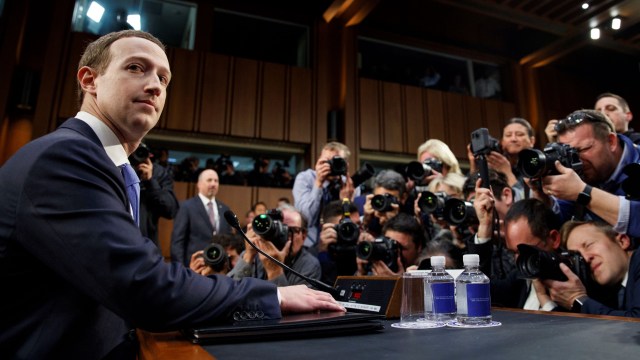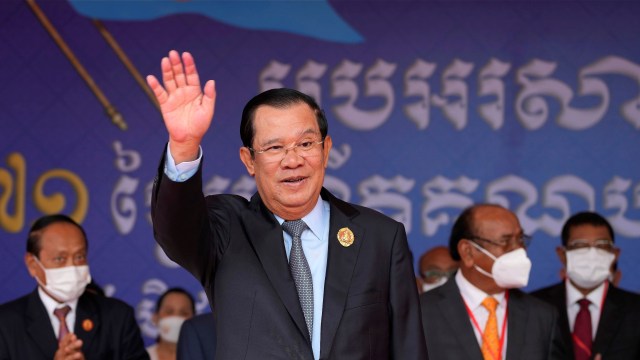Today at WPR, we’re covering this weekend’s presidential election in Guatemala and whether Big Tech has become more powerful than nation-states.
First, though, here’s our take on today’s top stories:
Zambia: After becoming the first African country to default on its debt during the COVID-19 pandemic, Zambia has now struck a deal to restructure $6.3 billion in debt owed to other governments, including to its largest official creditor, China. The deal was made through a new G-20 debt restructuring framework announced last year. (Reuters)
Our Take: Zambia’s debt-restructuring deal is significant for a number of reasons, most immediately for the much-needed relief it will offer the country.
- It was also seen as a test case for the G-20’s new debt-restructuring framework for low-income countries, many of which also now face unsustainable debt loads exacerbated by the pandemic and the war in Ukraine.
- As the first successful restructuring under the mechanism, it demonstrates that the Global North is taking the Global South’s concerns to heart.
- Finally, the fact that China ultimately approved the deal suggests that Beijing is sensitive to how its role in the Global South’s debt crisis is being perceived, at a time when its approach to global lending and development is changing.
As significant as the deal is, however, most of Zambia’s debt is held by private sector creditors, who have been much more resistant to restructuring. So the country will get relief, but its debt crisis—and that of the Global South—is by no means resolved.
*****
UAE-Iran: The president of the United Arab Emirates met with Iran’s foreign minister yesterday, the latest sign of improving relations between the two countries, amid a broader regional détente. (AP)
Our Take: Abu Dhabi has been attempting to thaw relations with Tehran for more than a year, but a major sticking point has been the spillover of Yemen’s civil war into the UAE, in the form of Houthi missile attacks. So the proof of the pudding for improving relations between Abu Dhabi and Tehran will be in whether Iran successfully reins in the Houthis from targeting UAE territory moving forward.
More Context from WPR: Frida Ghitis on how recent attempts at rapprochement were derailed by Houthi attacks on Abu Dhabi.
*****
You can read the rest of today’s News Wire, a curated selection of one must-read article from every region, here.

Guatemalans head to the polls this weekend in a presidential election that many in the country view as a pointless farce because so many opposition candidates have been removed from the race.
As Will Freeman writes, though, there is still one candidate who might be able to chart a course for the country back toward democracy:

Guatemala’s Election Could Sound Democracy’s Death Knell
Democratic backsliding and corruption have caused many Guatemalans to view this presidential election as a farce. Read more.
Some observers argue that the future of global power will be a story of corporations, not countries, especially as tech companies and their billionaire CEOs continue to gain influence. Columnist Paul Poast argues that such claims are overblown:
Big Tech Won’t Run the World
Who rules the world? In discussions of international politics, the focus is often on states. With the rise of Big Tech, though, some observers have argued that the future of global power will be a story of corporations, not countries. But claims that corporations will dominate the world and surpass states in power are overblown. Read more.


Mexico’s highest court struck down part of a bill that would have undermined the National Electoral Institute, or INE, which oversees elections in the country. The ruling is a major blow to President Andres Manuel Lopez Obrador, who pushed through the controversial legislation earlier this year.
Critics say the bill is anti-democratic, and its approval in March led to mass protests across the country, as Frida Ghitis detailed at the time:

AMLO’s Electoral ‘Reform’ Has Mexico in the Streets
March 2, 2023 | A massive protest in Mexico City drew attention to AMLO’s INE reforms, which could threaten the country’s democracy. Read more.
*****
Cambodia’s parliament voted unanimously to bar anyone who does not vote in the country’s general election next month from contesting any future elections. Critics say the election will essentially be a sham since PM Hun Sen has removed any and all threats to his and his party’s grip on power, as Ben Lawrence wrote in April:
Hun Sen Is Tightening His Grip Ahead of Cambodia’s Elections
April 19, 2023 | Kem Sohka’s conviction on treason charges removed the only threat to Hun Sen and the CPP in Cambodia’s upcoming elections. Read more.

That’s all for today’s Daily Review. Coming up, we’ve got a look at Indonesian President Joko Widodo’s legacy and how Gulf States are embracing green energy.
Have a great day,
Jakob Cansler
More from WPR
- Yasir Zaidan on the conflict in Sudan.
- Frida Ghitis on how autocracies are courting Venezuela.
- Alexander Clarkson on new trends in Austria’s far right.
- Joshua Kurlantzick on Myanmar’s civil war.

